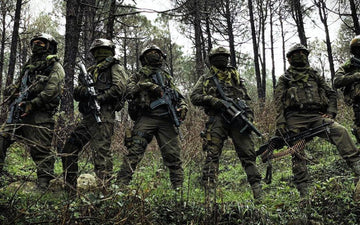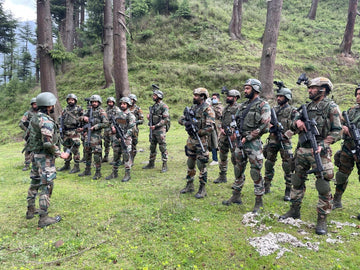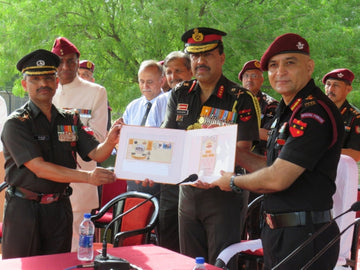The Services Selection Board (SSB) interview is renowned for its challenging nature and plays a critical role in selecting candidates for various roles within the Indian Armed Forces. With an alarmingly low success rate, many aspiring candidates often find themselves questioning the difficulty of this interview process. This article delves into the intricacies of the SSB interview, exploring its structure, evaluation criteria, specific challenges faced by candidates, and the preparations necessary to navigate this demanding assessment effectively.
Historical Context of the SSB Interview
The SSB interview was established post-independence to bring about a systematic approach to selecting officers for the Indian Armed Forces. Originally derived from the British system of selecting officers during colonial rule, the SSB has evolved over the decades, incorporating unique methodologies to better evaluate the qualities necessary for military leadership. The focus has shifted from merely assessing academic prowess to identifying inherent personality traits and leadership qualities — the Officer-Like Qualities (OLQs).
Back in the early days, selection was often a straightforward process, primarily based on physical fitness and academic credentials. Over time, the complexity of modern warfare and the changing roles of armed forces personnel necessitated a more holistic approach to evaluation. Today, the SSB interview spans five intensive days and assesses candidates on multiple dimensions, aiming to prepare them for the unpredictable challenges they will face in service.
Main Sections
Understanding the Difficulty: Success Rates and Assessment Criteria
One of the most apprehensive aspects of the SSB interview is its low success rate. Recent statistics suggest that only about
2-4% of applicants progress beyond the initial stages. Despite rigorous preparation and outstanding academic qualifications, many candidates find that performing well in written exams like the Combined Defence Services (CDS), National Defence Academy (NDA), or Air Force Common Admission Test (AFCAT) does not guarantee success in the SSB interview process. When considering the overall success rate for the entire SSB journey, it ranges between
6% and 10%.
Evaluation Criteria and Officer-Like Qualities (OLQs)
The SSB interview assesses candidates against a set of objectives classified as Officer-Like Qualities (OLQs), which include:
-
Leadership Skills: Demonstrated through group interactions where candidates must navigate diverse opinions and influence teammates.
-
Decision-Making Abilities: Evaluated through situational tasks that test candidates' judgment and foresight.
-
Communication Skills: Essential for group activities where both verbal and non-verbal communication determine candidates' influence and clarity.
-
Self-Confidence: A key indicator of a candidate's belief in their capabilities and potential to command respect.
-
Adaptability and Resilience: Flexibility in thought processes and reactions during unpredictable group dynamics is crucial.
Achieving a balance among these qualities is perhaps the most daunting task for candidates, as they often encounter scenarios that challenge their ability to lead, communicate, and make decisive choices under pressure.
Structure of the SSB Interview
The SSB interview unfolds over a
5-day process, divided into two primary stages:
-
Stage-I: This stage includes the Officer Intelligence Rating (OIR) Test, a psychometric test designed to evaluate candidates' cognitive abilities, followed by the Picture Perception and Description Test (PPDT), where candidates interpret a picture and articulate their observations.
-
Stage-II: This stage is marked by more comprehensive evaluations, comprising:
-
Group Testing Objectives (GTO): Involving various outdoor tasks that assess teamwork and leadership.
-
Psychological Tests: Including Thematic Apperception Test (TAT) and Sentence Completion Test (SCT) that delve into candidates' personality traits.
-
Personal Interview: Conducted to gauge communication skills and self-awareness.
-
Conference: The final stage, where all assessors discuss the candidates' performance and make final recommendations.
This rigorous structure can be overwhelming, which adds to the high-stakes atmosphere frequent among candidates.
Specific Challenges Candidates Face
Candidates often experience a range of challenges during the SSB interview process, including:
-
Lack of Self-confidence and Originality: Many candidates find it hard to express their thoughts and stand out in group discussions due to self-doubt.
-
Poor Communication and Leadership: Skills in articulation and group coordination can significantly affect performance.
-
Being Overly Dominant or Passive: Striking the right balance in group activities is crucial, as any extreme can lead to disqualification.
-
Negativity in Psychological Tests: Reflecting pessimistic traits can thwart a candidate’s chances.
-
Lack of Self-awareness: Candidates may struggle with articulating their strengths and weaknesses effectively during interviews.
-
Physical Fitness: While largely a mental assessment, physical fitness remains a requirement. Candidates who fail to meet basic fitness standards may be eliminated.
-
Fear of Failure: Stress and anxiety can lead to poor performance in critical assessments.
Understanding these challenges can help candidates better prepare and develop strategies to mitigate their effects.
Mental and Physical Assessment Focus
The SSB interview places considerable emphasis on mental capabilities, with approximately
80% of the evaluation targeting mental attributes and only
20% focused on physical fitness. This highlights the board's intention to identify candidates who are not just physically robust but also mentally resilient and capable of critical thought and robust decision-making.
Preparation and Mindset
A candidate's preparation and mindset significantly influence their performance during the SSB interview. Thorough preparation is essential and should encompass both academic knowledge and personality traits. Techniques for effective preparation include:
-
Self-Assessment: Candidates should analyze their strengths, weaknesses, and personalities to present their true selves during the interview.
-
Mock Interviews and Group Discussions: Engaging in simulated scenarios can enhance leadership and communication skills.
-
Physical Fitness Regime: Regular exercise not only prepares the body but also aids mental stamina and focus.
-
Mindfulness and Stress Management: Employing relaxation techniques can help maintain calmness and confidence.
-
Study of OLQs: Understanding and developing the respective qualities will empower candidates to exhibit traits that align with what the SSB seeks.
The correct mindset plays a pivotal role; a confident, well-prepared candidate is more likely to face challenges constructively rather than be overwhelmed by them.
Case Studies or Real-World Applications
Consider the story of Captain Vikram Batra, who was celebrated for his extraordinary leadership during the Kargil War. His journey through the SSB interview was marked by hard work, self-awareness, and an unwavering belief in his abilities. Batra utilized his leadership qualities and effective decision-making during critical moments, which ultimately defined his military career.
Similarly, aspirants often benefit greatly from the experiences of past successful candidates who share insights on their SSB journey. Online platforms like
SSBCrack offer courses, eBooks, and other study materials which provide real-life experiences, helping new candidates prepare more effectively.
Statistical Data and Research Insights
An analysis of SSB statistics reveals the stark realities candidates face. Research shows that candidates with previous exposure to leadership roles or extracurricular activities often perform better, indicating that broader experiences contribute significantly to overall success. Moreover, the psychological assessments of candidates show that positive disposition correlates with higher success rates, reinforcing the need for mental preparedness.
Comparative Analysis: Preparing for the SSB Interview
When preparing for the SSB interview, aspirants often seek guidance from various resources. The following comparative analysis examines traditional preparation methods versus modern techniques:
-
Traditional Coaching Institutes:
- Focus on physical training and mock interviews.
- May not address individual candidate personalities comprehensively.
-
Online Learning Platforms (e.g., SSBCrack):
- Offer a variety of resources, including interactive courses and personalized feedback.
- Emphasize mental preparation, self-awareness, and OLQs, expanding beyond physical conditioning.
The evolving landscape of SSB preparation indicates that technology and modern learning methodologies can significantly bolster candidates' potential.
Challenges and Solutions
Candidates face numerous pressing challenges that can deter their progress. Below are common issues and recommended solutions:
-
Challenge: Overwhelming Pressure
Solution: Mindfulness techniques such as meditation to promote relaxation.
-
Challenge: Ineffective Communication
Solution: Join public speaking clubs to enhance clarity and expression.
-
Challenge: Self-Doubt
Solution: Regular self-reflection and feedback from peers can build confidence.
-
Challenge: Group Dynamics
Solution: Participating in team-building exercises can enhance teamwork skills and adaptability.
By recognizing these challenges and employing practical strategies, candidates can improve their chances of success.
Future Trends and Predictions
As the SSB interview continues to adapt to modern warfare and leadership dynamics, we expect the selection process to incorporate more technology-driven assessments. Virtual reality scenarios and advanced psychological evaluations may play a role in future interviews, enabling a more refined assessment of candidates’ suitability for military leadership roles.
Conclusion
The SSB interview is, without a doubt, a rigorous and multifaceted evaluation process that demands a vast array of skills and qualities essential for military leadership. The low success rates reflect its tough nature, but rigorous preparation, a calm mindset, and an understanding of the holistic evaluation criteria can significantly enhance a candidate's chances.
As you embark on your journey towards potentially joining the esteemed ranks of the Indian Armed Forces, remember that every challenge within this interview process is an opportunity for growth and self-discovery. Embrace the challenges, invest time in genuine preparation, and take each challenge as a stepping stone toward achieving your goal. For those aspiring to make their mark, utilizing resources such as
SSBCrack can provide valuable insights and guidance to navigate this intricate pathway successfully.





